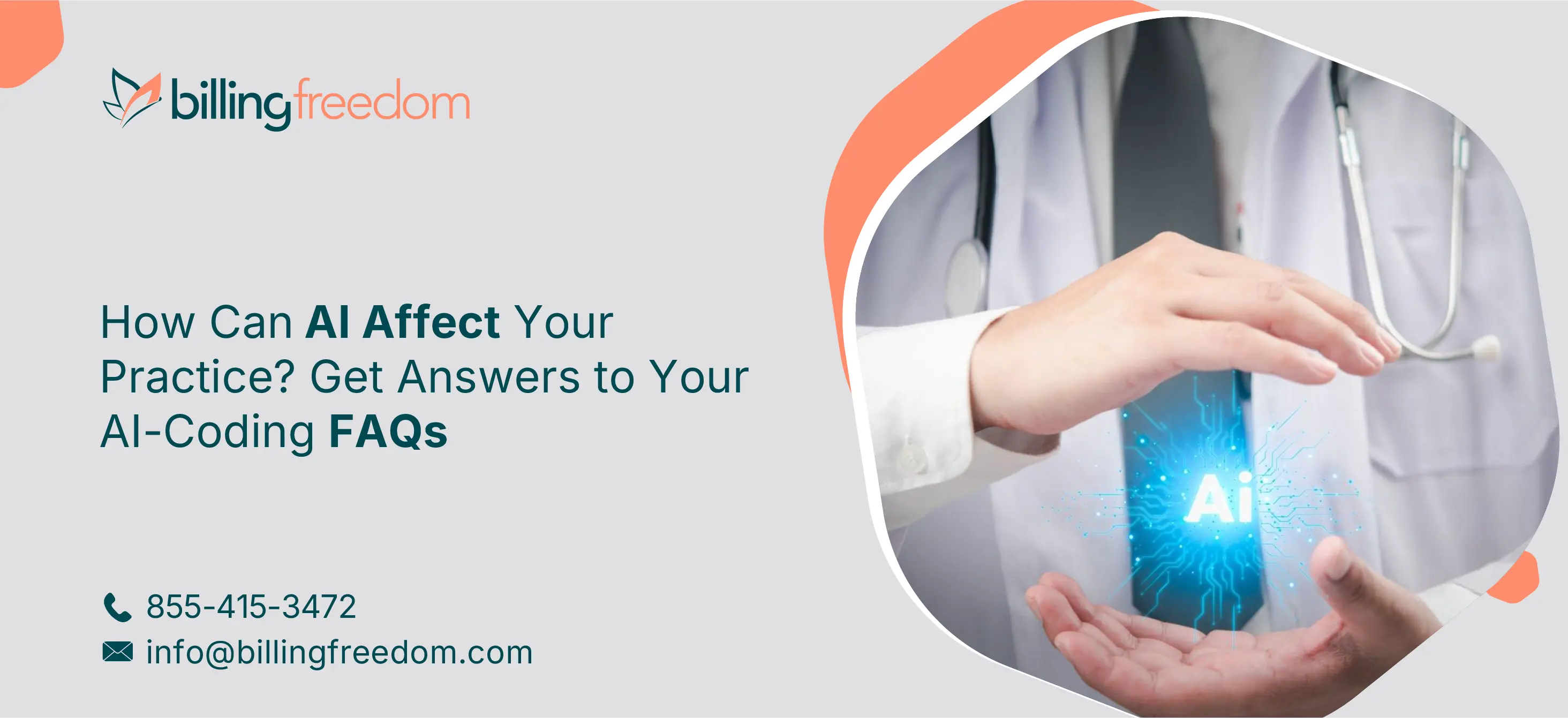
How Can AI Affect Your Practice? Get Answers to Your AI-Coding FAQs
Artificial intelligence (AI) is transforming the healthcare industry, offering powerful tools to enhance efficiency, accuracy, and patient care. From automating administrative tasks to assisting in disease diagnosis, AI is revolutionizing medical practices. Physicians and healthcare leaders increasingly adopt AI-driven solutions to streamline workflows, improve coding accuracy, and optimize billing processes.
But how does AI impact your practice, and what should you know about AI-driven medical coding?
This guide answers common AI-coding FAQs to help you navigate this evolving technology.
If AI Processes Data Faster Than Humans, Are Our Jobs on the Line?
AI is rapidly evolving, transforming healthcare workflows and improving efficiency. While it offers many advantages, some medical coders worry about its impact on job security. AI-powered coding tools can process large volumes of complex data much faster than humans, but that doesn’t mean coders will be replaced.
AI is designed to enhance productivity, not eliminate roles. It helps coding teams work more efficiently by handling straightforward cases or identifying key terms in complex records. It allows human coders to focus on more intricate tasks that require clinical understanding and judgment. If a practice has a set number of coders, AI can help them review more charts in the same workday without increasing staff.
While AI improves efficiency, human coders remain essential. They interpret complex documentation, apply coding guidelines, and resolve ambiguities that AI alone cannot fully address. Ultimately, AI is a tool to support coders, ensuring accuracy, efficiency, and adherence to clinical best practices.
How Is AI Maintaining PHI Security?
Protecting patients’ protected health information (PHI) is a top priority when integrating AI into healthcare systems. Ensuring compliance with HIPAA regulations requires strong security measures and collaboration between IT and cybersecurity teams to prevent unauthorized access and potential breaches.
One key approach is data encryption, which safeguards sensitive information by preventing unauthorized users from viewing, modifying, or stealing it. Encryption ensures that only authorized people can access the data, maintaining patient confidentiality.
Cybersecurity teams also conduct rigorous testing, such as red teaming, to identify vulnerabilities. This process involves simulated cyberattacks where experts attempt to breach security systems to uncover weaknesses before real threats emerge. Organizations can strengthen their defenses against potential risks by proactively testing AI systems.
Access controls enhance PHI security by limiting data access based on job roles. Role-based access ensures that only authorized personnel—such as clinicians, billing staff, or administrators—can view specific patient information relevant to their duties. For example, a front desk staff member may access billing and scheduling details but not medical records. Implementing minimum necessary access policies helps reduce exposure to sensitive data, minimizing the risk of breaches.
Additionally, AI-driven systems benefit from standard cybersecurity practices like firewalls and continuous monitoring. Firewalls act as a protective barrier against external threats, while continuous monitoring allows security teams to detect and respond to suspicious activity in real-time.
By combining encryption, rigorous security testing, access controls, and advanced cybersecurity measures, AI can help healthcare organizations maintain PHI security while enhancing efficiency and compliance.
How Can We Embrace AI in Our Organization?
Integrating AI into medical coding and billing comes with both benefits and challenges. Implementing this technology ultimately depends on your organization’s goals and needs. If you adopt AI, fostering staff acceptance is key to ensuring a smooth transition and maximizing effectiveness.
Encourage Collaboration
Successful AI integration requires open communication with your IT team. Regular feedback on what’s working well and where improvements are needed helps refine the system’s functionality. It’s also essential to involve individuals with coding expertise in discussions about AI adoption. Their insights ensure that AI is viewed as a tool to support coders rather than replace them.
Promote Education and Training
Many medical coders may feel uneasy about AI’s role in their field, fearing it could replace their jobs. Providing educational resources—such as training sessions, webinars, and informative articles—can help ease concerns and clarify AI’s purpose. AI enhances efficiency, but human oversight remains crucial for ensuring coding accuracy and handling complex medical records that require critical thinking.
Maintain Active Involvement
A structured approach to AI implementation increases staff confidence. When selecting an AI solution, having someone knowledgeable about the technology in discussions is invaluable. They can assess factors like security, accuracy, compliance, and usability. Additionally, maintaining human oversight in AI-assisted coding is essential. Credentialed auditors, such as Certified Professional Medical Auditors (CPMAs), can play a pivotal role in reviewing AI-suggested codes, ensuring they align with established guidelines.
By fostering collaboration, educating staff, and maintaining human oversight, healthcare organizations can effectively embrace AI while preserving the accuracy and integrity of medical coding.
BillingFreedom: The Experts in AI-Driven RCM & EHR Integration
BillingFreedom leads the way in AI-powered revenue cycle management (RCM), and electronic health records (EHR), ensuring seamless integration to maximize efficiency and reimbursement. Our AI-driven solutions streamline medical coding, billing, and claims processing while maintaining strict PHI security and HIPAA compliance.
With advanced automation, predictive analytics, and role-based access controls, we enhance accuracy, reduce denials, and accelerate revenue cycles. Our expertise ensures AI complements human coders, improving productivity without replacing critical decision-making. From AI-assisted coding to real-time claims tracking, BillingFreedom empowers healthcare organizations to optimize workflows and boost reimbursement rates.
Partner with BillingFreedom for cutting-edge AI integration that enhances financial performance while maintaining compliance and security. Experience smarter, faster, and more reliable RCM solutions today.
For more details about our exceptional medical billing services, please don't hesitate to email us at info@billingfreedom.com or call us at +1 (855) 415-3472.
Your financial tranquillity is our priority!
Let's Get in Touch
Please fill up the form, one of our AAPC certified medical biller and coder will reach out to you.




